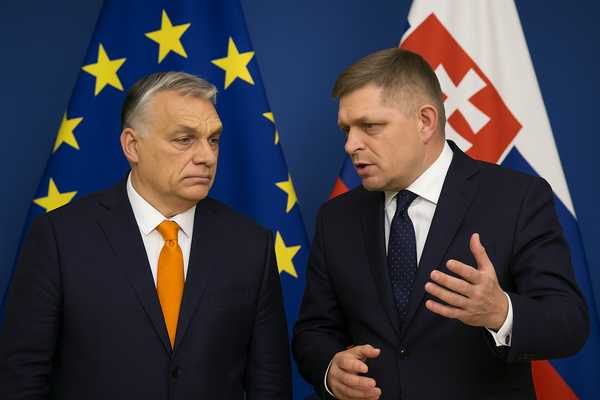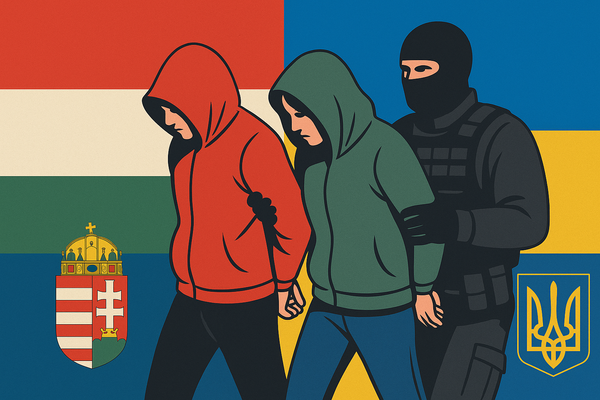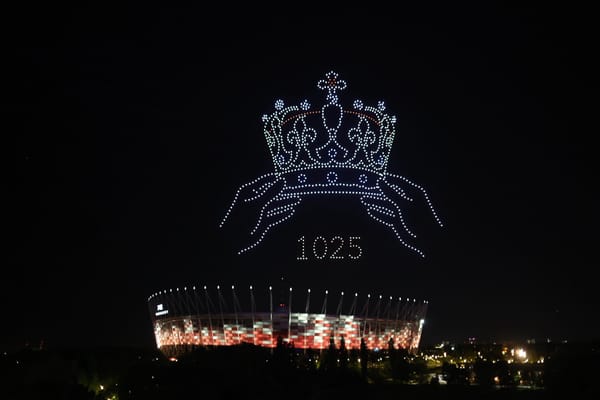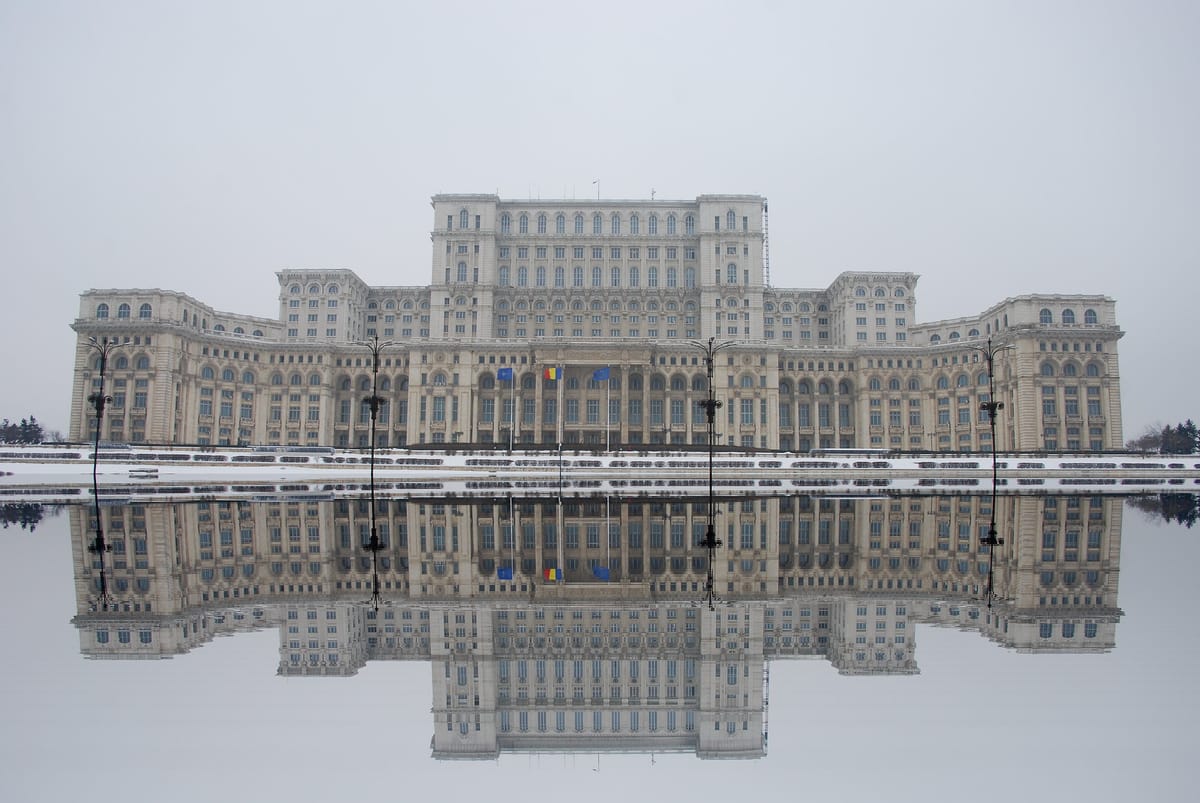
Romanian ruling party wins House elections to stem political crisis
Romania’s ruling centre-left party came first in parliamentary elections, according to preliminary results, one week after the surprise victory of a far-right, anti-NATO presidential candidate in the first-round ballot.
With 96.4% of votes counted, the ruling Social Democratic party (PSD) had 22.5% of the votes to the far-right nationalist Alliance for the Union of Romanians (AUR) on 17.7%. The National Liberal Party (PNL) garnered 13.6% and the conservative Save Romania Union (USR) 11.9%.
While AUR more than doubled its previous parliamentary election result of 8.5% on 1 December, a couple of other far-right parties – Young People (POT) and SOS Romania – also looked set to clear the 5% threshold required to enter the House.
What this means is that, on the 2nd of 3 consecutive election weekends, around 30% of the votes cast by Romanians were for hyper-nationalist parties, after the shock victory of far-right, Kremlin-backed newcomer Calin Georgescu 7 days earlier.
Turnout was high, as Georgescu’s win appeared to have motivated supporters of traditional parties to go out and vote, and the overall results suggest that a PSD-led pro-EU coalition could now form Romania’s next government, albeit with some backstairs intrigue required in the coming weeks.
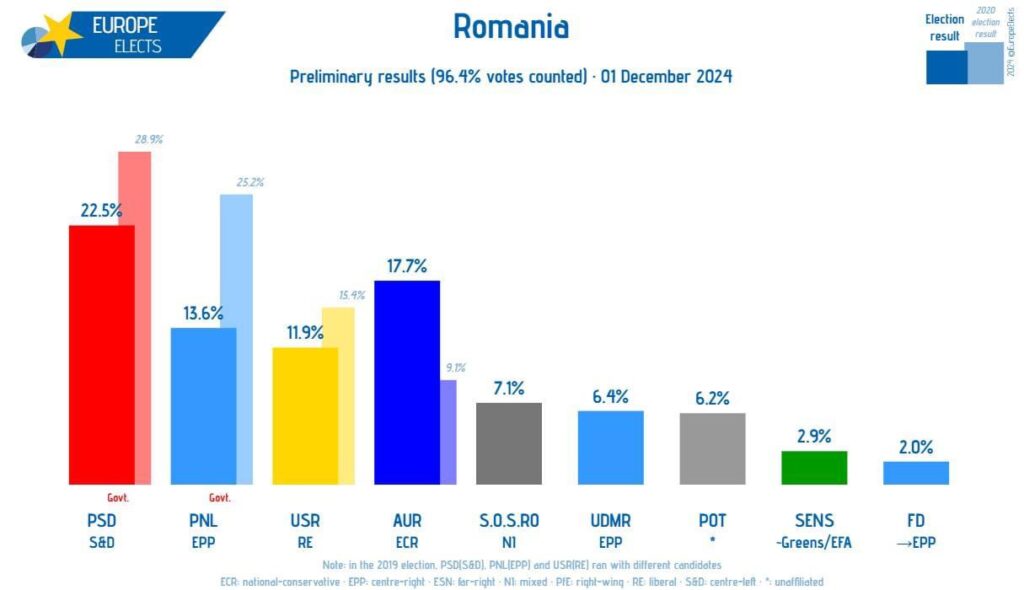
On Sunday evening, Romanian Prime Minister Marcel Ciolacu said “Today the Romanians have confirmed that the Social Democratic Party is the main political force of Romania. We thank all the Romanians who voted for the Social Democratic Party, and also to those who did not choose the Social Democratic Party!
“I understood exactly the answer we have towards Romania. It is an important signal that the Romanians have sent to the political class. Let’s continue to develop the country with European money while protecting our identity, national values and faith,” Ciolacu added.
Romanian democracy rocked by anti-NATO candidate’s success
The Romanian presidency gives the head of state control over not only prime ministerial appointments but also defence spending. Georgescu, a virtual unknown who doubled his predicted vote last week, has urged an end to the Ukraine war and claimed that Romania would benefit from “Russian wisdom” in its foreign policy.
The intervening week had been one of soul-searching and finger-pointing for the Romanian political establishment, namely the centre-left PSD and centre-right PNL. The following day, the evening after the election, 25 November, over 1,000 people gathered in Bucharest, praising Europe and chanting, “Putin, don’t forget, Romania is not yours”.
The average Romanian voter has reasons to cast a protest vote: the country has the EU’s highest inflation, the highest proportion of people “at risk” of poverty and its largest budget deficit. Meanwhile the far-right has stoked fears that the Ukraine war could spill over the border unless the country halts its support.
EU summons TikTok over possible DSA breach
However, Georgescu’s ostensibly no-budget campaign has raised suspicions of Russian interference, and shocked observers as the strong and strategic ally of NATO, the EU and the US appeared to have fallen into the orbit of Russia.
On Thursday 28 November, Romania’s presidential office – the country’s top court – ordered the national election office to “recheck and recount all valid and invalid ballots”, and may annul the presidential election result, amid allegations of illegal electoral activity around the campaign of Elena Lasconi of the pro-EU, centre-right USR.
One court official complained of “massive exposure due to preferential treatment” on TikTok, which the Chinese social media platform has dismissed. If the second, runoff election round goes ahead on 8 December, Georgescu will face Lasconi in a vote with huge geopolitical implications.
After Romanian authorities raised “various irregularities” regarding the presidential election first round on Sunday 24 November, the European Commission (EC) met Romanian officials and representatives of digital platforms, including TikTok.
The EU’s Digital Services Act guards against election meddling, and in October the EC requested that TikTok clarify its measures to avoid the manipulation of information and “mitigate the risks related to elections”. Tiktok said it had removed 88 advertisements related to non-regular political content. However, the ads had already over 3mn views, Politico notes.
Rumours cited by the Brussels-based website Politico suggest that the EU is considering fining TikTok millions of euros. However, this is unlikely to come into effect before Romania’s upcoming third election weekend.
Some clarity emerged on Monday, 2 December, as Romania’s Constitutional Court reversed its decision to hold a recount of the 24 November ballot, confirming Georgescu as the winner.
“The judges have unanimously decided to… confirm and validate the result of the first presidential round on 24 November and holding the second round on 8 December,” Romania’s chief judge Marian Enache said.
Outgoing president Klaus Iohannis said Sunday’s vote would decide whether Romania would remain “a country of freedom and openness, or collapse into toxic isolation and a dark past”.


